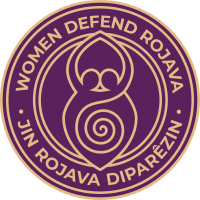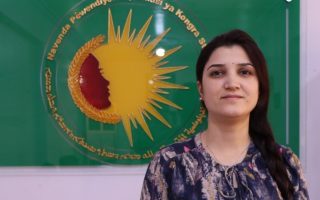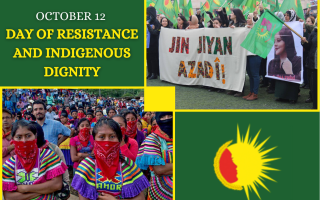Deir ez-Zor is one of the regions in the northeast of Syria with a majority Arab population, mostly belonging to Sunni Arab tribes. Although the last of its towns was liberated from DAESH control a year and a half ago, the region still struggles with ISIS sleeper cells in the region. Now, parts of the region are under the control of the Regime, and other parts are self-governed and protected by the Syrian Democratic Forces (SDF). Democratic projects are expanding in the region, as society is rebuilding itself after years of DAESH control which have left behind complicated and developing dynamics.
Tension and discontent prevail among Arab clans in the Deir ez-Zor region, against the backdrop of a series of assassinations whose targets include of some of the leaders and notables of the Arab tribes. The perpetrators are as of yet unidentified.
Notably, the beginning of the assassinations coincided with the discussions of a contract between an American oil company, Delta Crescent Energy (DCE), and the SDF, to develop and invest in oil fields in Northern and Eastern Syria under US supervision.
In eastern Deir ez-Zor, especially in the City of Al-Busayrah and the villages of Deban, Al-Shehail and Al-Hawaij, the assassinations have sparked a wave of widespread protests. The outrage over the killings develops amid the inciting, misleading and fabricated media atmosphere present in the region. Through a campaign of fabricated news, the opposition media works on behalf of various parties that are hostile to peaceful civil coexistence in Northern and Eastern Syria, calling for internal strife and steadily increasing the tension of the situation until it comes to violence, as this serves the interest of these parties.
After the liberation of the Northern and Eastern regions from the terrorist organization ISIS, those opposing the SDF got right to work smearing the Self Administration—distorting its image by trying to convince the people of the region of a narrative of Kurdish occupation of Arab land. All this bearing in mind that without the intervention of the local forces led by the SDF and the air cover of the international coalition, it would be impossible for any of the parties that are today hostile to the democratic project in the region to liberate the region from the terrorist organization ISIS.
There is significant economic stress in the region, especially in the northeastern countryside of Deir ez-Zor, which has poor administrative and institutional infrastructure to address the needs of the clans the population, and so the clans repeatedly demanded from the local councils of th
Autonomous Administration to provide these services, with the the full right of course to do so. The development of infrastructure in the region is greatly hindered by the unstable security situation, due to the presence of ISIS sleeper cells, as they terrorize the people of the region, which pushes the Syrian Democratic Forces into campaigns against these cells, adding to the mountain of difficulties present in the region hindering its path forward.
The opposition media exploits the complexity of this dynamic to turn people against each other and against the Self Administration. Those opposing the democratic project have come to see the fight against the ISIS insurgency as a fight against the people of the region. The rifts existing between clans grow deeper as they are split between the dueling forces of the SDF, the Regime and the Syrian mercenaries aligned with Turkey and Iran.
Turkey, the Syrian Regime, and Russia each stand to benefit from sewing this discord and have been practicing subversive policies in the region since the liberation of the region from DAESH control.
Regarding the question of who is behind the assassinations, none of these forces can be ruled out. The Baathist regime is trying, with all its available capabilities, to strike the civil peace and exploit the clans to confront the Syrian Democratic Forces and the International Coalition, in order to ensure the sparking possibilities of international recognition of the Self Administration never come to flame. Turkey is one of the most important beneficiaries of the strife in Northern and Eastern Syria, and destroying the relationship between SDF and the clans is ever on its agenda—thus it has hastened to condemn the recent oil deal.
Recently, a state of intense competition has emerged between the Syrian regime, its allies, and Turkey, to gain the favor of the Arab tribes, as these forces realize that removing the American forces from the region will not be easy in light of the imbalance of power, and that their best bet is to put more efforts into the people of the region and incite a popular uprising against SDF and the coalition.
There are strong indications that the regime was behind the assassination operations. One of the indications was the meeting between the regime and the clans in Deir ez-Zor after which their came an announcement of a formation of a military council from all the clans of the Al-Akidat tribe under the leadership of the Assad regime, which he called to rise up against SDF. When the regime did not receive this support they were seeking from the tribes, they responded with bombings. Another indication comes from the statements of Abdurrezak Nawaf Al Qatay, who confessed he has been working as part of a program of the Syrian state, in which cells seek to target tribal and opinion leaders, and promote Arab nationalism.
The question of who exactly is responsible for these assassinations has yet to be answered with certainty, but it is clear that forces exist in the region who see the agreement between SDF and DCE and what it represents as a threat to their interests, and they are willing to go to great lengths to preserve those interests—destroying the ties between the people and pushing the region into turmoil.
In spite of these anti-democratic efforts, the region continues to progress. Much has been built in the short time since the liberation of Deir ez-Zor, and the majority of people in the region favor the system of self-administration. The system of democratic confederalism fits the needs of the region well, and through these processes of self-administration we have seen peoples of many religions, ethnicities and tribes come together and organize their lives. The SDF has no small work in the region as it carries out operations against DAESH sleeper cells while continuing to strengthen relations with the tribes and peoples, but as usual they are up to the task, affirming in a statement from SDF General Command that:
“Our forces, which are the targets of smear policies in the press and military attacks in the field, have been accepted and claimed by all the peoples living in the region. We emphasize once more. The SDF’s primary goal is to destroy ISIS terrorism.”
Source: https://nrlsrojava.com/ku/analiz/buyeren-derazore-u-tekcuna-pirojeyen-dijminane/




